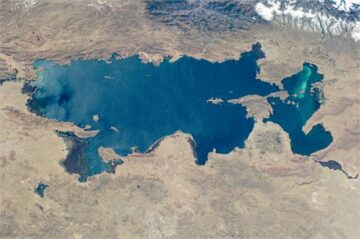 |
| Photo by Annika Palmari on Unsplash |
By Robert McLachlan
OPINION: New Zealand is making progress on meeting its renewable electricity targets but failing to come close to what’s required when it comes to decarbonising transport.
Three years ago I asked, “Why did New Zealand’s CO2 emissions blow out so spectacularly in 2019?“. At that point, emissions had risen 10% in three years. My conclusion was that:
The forces for increasing fossil fuel burning were vastly more powerful than the puny forces opposing them. All the talk about climate change in 2017–2019 had little effect on the behaviour of companies or individuals.
Have we turned the corner? Possibly. The pro-fossil fuel forces are still there, but the opposing forces are gathering strength, especially through the Zero Carbon Act which for the first time includes a falling cap on emissions. In the most sensitive sector, electricity, the changes can be seen already. My takeaway from the new 2019 data is that the big four, road transport, aviation, electricity, and food processing, that are so large, that have performed so poorly, and that have so much scope for transformation, are where we need to look for change.
We don’t have full emissions data yet for 2023, but MBIE have just released a partial snapshot covering emissions from the burning of fossil fuels, which contribute 85% of gross CO2 emissions. 2023 was the first full post-lockdown year – travel restrictions were only eased in early and mid-2022.

Although emissions are up slightly, they are still well below the blow-out year of 2019, and stand at 23-year lows. 2022 and 2023 comprise the first half of the first 2022-2025 carbon budget, so low emissions in these two years will definitely help us meet the budget.
But digging into things in more detail, progress is not so great. Here’s the breakdown by fuel:

This shows that the fall in emissions in 2022-23 was due to falling electricity emissions, caused by full hydro lakes (hydro generation up 4200 GWh on the previous two years, or 5% of total generation) and new wind farms (up 1100 GWh). Solar (up 290 GWh) also started to make an appearance. That doesn’t mean that electricity emissions will bounce back, though: another 2800 GWh of new renewable generation is planned for the next three years, so even in an ‘average’ rain year we should be alright.
Clearly a major culprit is oil. It’s a big chunk of these emissions (70%) and it’s hard to move. Oil consumption is down on record highs, but not by much – closing the Marsden Point oil refinery in mid-2022 shifted 0.8 MtCO2 of emissions offshore, accounting for the whole decline.
The Clean Car Discount was introduced in mid-2021, and staying in place for 2 1/2 years, but has now ended. Road User Charges will be introduced on EVs in two weeks’ time, at a proposed rate of $76/1000 km – New Zealand will be the first country in the world to do this. (In Australia, the state of Victoria did impose RUCs on EVs, at A$25/1000 km, but this was annulled by the High Court last year.) There are also threats to weaken future fuel efficiency standards and to remove fuel excise duty entirely. Together these amount to a war on EVs which may lead to significant upward pressure on emissions. The fact that all the EVs in New Zealand are only saving 0.14 MtCO2 a year at present – too small to even see on the above graph – doesn’t mean they’re a failure, it just shows the scale of the problem and the persistence that is required.

Of course EVs are not the only or even the most important solution to transport emissions. In 2021 I wrote that “big battles over mode shift lie ahead” and these have now come to pass with the release of the Government’s draft policy statement on transport, which drastically de-emphasises cycling, passenger rail, and public transport. Climate Liberation Aotearoa have a handy mantra:

The first three are part of the first Emissions Reduction Plan, but the Government appears to think it is free to ignore the plan. As I read it, they are in violation of the Zero Carbon Act, which says that:
The Minister may, at any time, amend the plan and supporting policies and strategies to maintain their currency (a) using the same process as required for preparing the plan; or (b) in the case of a minor or technical change, without repeating the process used for preparing the plan.
I guess that’s why we have lawyers.
Robert McLachlan is distinguished professor in Applied Mathematics at Massey University. Article originally published in Planetary Ecology.
- SEO Powered Content & PR Distribution. Get Amplified Today.
- PlatoData.Network Vertical Generative Ai. Empower Yourself. Access Here.
- PlatoAiStream. Web3 Intelligence. Knowledge Amplified. Access Here.
- PlatoESG. Carbon, CleanTech, Energy, Environment, Solar, Waste Management. Access Here.
- PlatoHealth. Biotech and Clinical Trials Intelligence. Access Here.
- Source: https://www.carbonnews.co.nz/story.asp?storyID=31062
- :has
- :is
- :not
- :where
- $UP
- 1
- 1100
- 14
- 2%
- 2019
- 2021
- 2022
- 2023
- 31
- 5
- 6
- 8
- 98
- a
- About
- above
- Accounting
- Act
- ago
- All
- Alright
- also
- amount
- an
- and
- Another
- any
- appears
- applied
- ARE
- article
- AS
- asked
- At
- Australia
- aviation
- b
- back
- battles
- BE
- behaviour
- below
- Big
- blow
- Bounce
- Breakdown
- budget
- burning
- but
- by
- CAN
- cap
- car
- carbon
- case
- caused
- change
- Changes
- charges
- clean
- Climate
- Climate change
- Close
- closing
- CO
- co2
- co2 emissions
- come
- comes
- Companies
- conclusion
- consumption
- contribute
- Corner
- country
- course
- Court
- covering
- Currency
- data
- Decline
- definitely
- detail
- DID
- Discount
- Distinguished
- do
- Doesn’t
- Dont
- down
- draft
- drastically
- due
- Early
- effect
- efficiency
- electricity
- Emissions
- ended
- entirely
- especially
- Even
- evs
- fact
- failing
- Failure
- Fall
- Falling
- Farms
- First
- first time
- food
- For
- Forces
- fossil
- Fossil fuel
- fossil fuels
- four
- Free
- from
- Fuel
- fuel efficiency
- fuels
- full
- future
- gathering
- generation
- Government
- Govt
- graph
- great
- gross
- guess
- had
- Half
- handy
- Hard
- Have
- help
- High
- Highs
- HTTPS
- i
- ignore
- important
- impose
- in
- includes
- increasing
- individuals
- into
- introduced
- IT
- ITS
- jpg
- just
- lakes
- large
- Last
- Last Year
- Lawyers
- lead
- liberation
- lie
- little
- Look
- Low
- Lows
- maintain
- major
- make
- Making
- Mantra
- mathematics
- May..
- mean
- Meet
- meeting
- minister
- minor
- Mode
- more
- most
- move
- much
- my
- Need
- New
- New Zealand
- next
- normal
- now
- of
- Oil
- on
- only
- or
- originally
- out
- over
- overall
- part
- partial
- pass
- performed
- persistence
- Place
- plan
- planned
- plato
- Plato Data Intelligence
- PlatoData
- Point
- policies
- policy
- possibly
- powerful
- preparing
- present
- pressure
- previous
- Problem
- process
- processing
- Professor
- Progress
- proposed
- public
- published
- Rail
- RAIN
- Rate
- RE
- Read
- record
- reduction
- release
- remove
- Renewable
- required
- restrictions
- Risen
- road
- ROBERT
- same
- saving
- says
- Scale
- scope
- sector
- see
- seen
- sensitive
- shift
- shifted
- should
- Shows
- significant
- slightly
- small
- Snapshot
- So
- solar
- solution
- stand
- standards
- started
- State
- Statement
- staying
- Still
- strategies
- strength
- Supporting
- Talk
- targets
- Technical
- than
- that
- The
- The Persistence
- The State
- the world
- their
- Them
- There.
- These
- they
- things
- Think
- this
- though?
- threats
- three
- Through
- time
- to
- together
- too
- Total
- Transformation
- transport
- travel
- Turned
- two
- university
- upward
- us
- used
- User
- using
- Victoria
- VIOLATION
- was
- we
- WELL
- were
- when
- which
- whole
- why
- will
- wind
- wind farms
- with
- without
- world
- wrote
- year
- years
- yet
- Zealand
- zephyrnet
- zero











